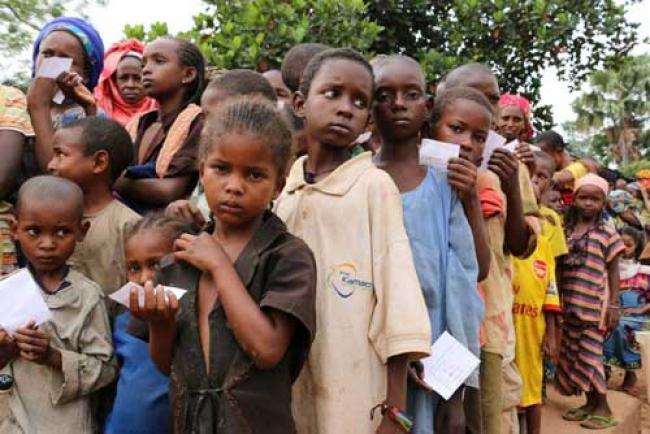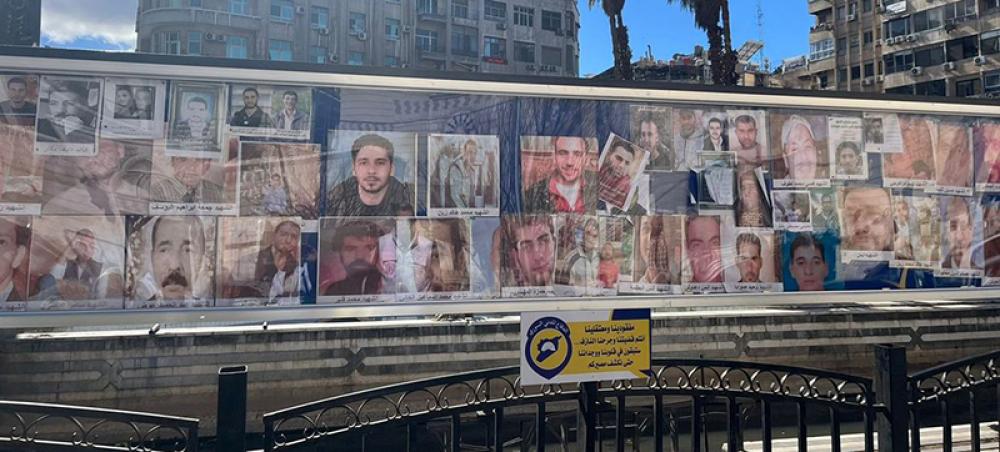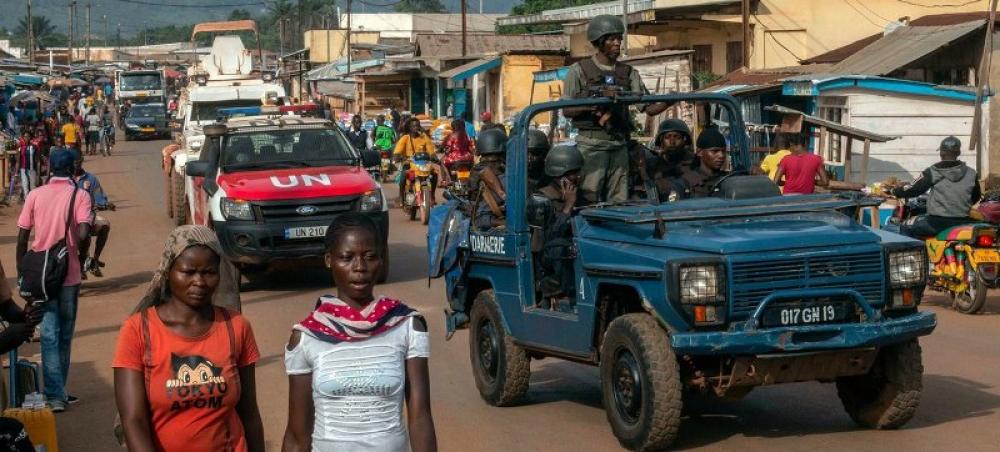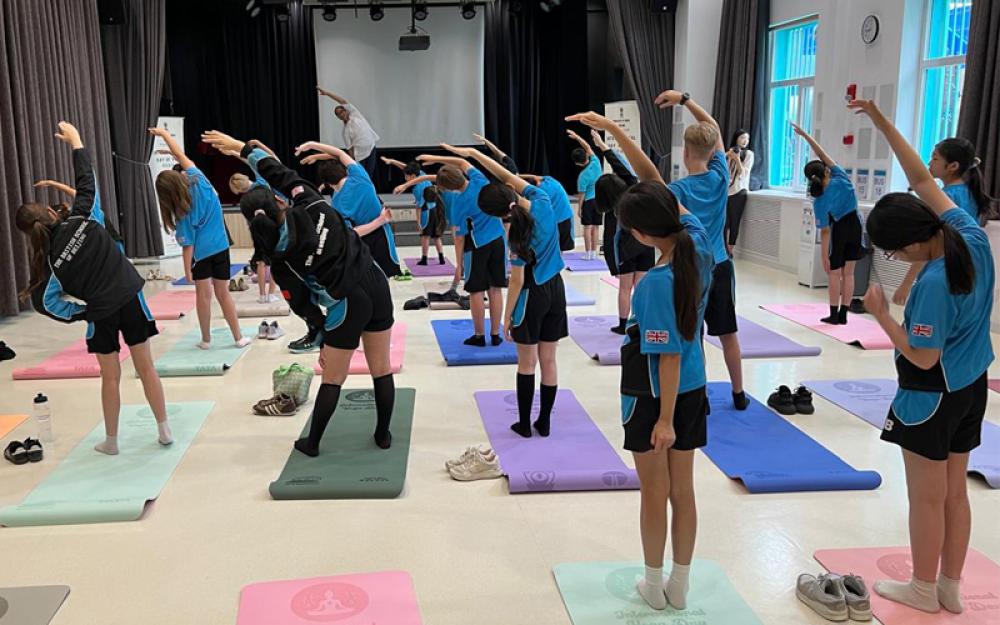Rights
Child Rights UNICEF deplores cruelty against children in CAR conflict
15 Feb 2014, 08:27 am Print

New York, Feb 15 (JEN): The United Nations children’s agency says it is horrified by the cruelty and violence being perpetrated against children in the Central African Republic (CAR), where at least 133 children have been killed or maimed in the past two months.
Children have not been spared in the conflict in CAR, which erupted when mainly Muslim Séléka rebels launched attacks in December 2012 and has taken on increasingly sectarian overtones as mainly Christian militias known as anti-Balaka (anti-machete) have taken up arms.
According to the UN Children’s Fund (UNICEF), recent weeks have witnessed “unprecedented” levels of violence against children in sectarian and retaliatory attacks by anti-Balaka militia and ex-Séléka combatants – acts that constitute grave violations against children.
“Children are increasingly targeted because of their religion, or because of their community,” said UNICEF West and Central Africa Regional Director, Manuel Fontaine. “Sectarian violence in Central African Republic has intensified, both in the capital Bangui, and in the west and centre of the country.”
The agency said in a news release issued on Thursday that at least 133 children have been killed and maimed, some of them in horrific ways, in two months of escalating sectarian violence. UNICEF has verified cases of children intentionally beheaded and mutilated, and is aware of children wounded in the cross-fire, who have had to have limbs amputated because insecurity blocked them from getting to the hospital in time for treatment.
In the town of Boali, northwest of the capital, one in four casualties has been among children, with 22 killed and 42 injured since early December.
“While violence has been committed by all groups, the most recent targeting of Muslim populations has resulted in the evacuation of whole communities and a significant increase in the number of unaccompanied children, separated from their families in the upheaval. These children are particularly at risk,” said UNICEF.
The agency is appealing to Government, community, religious and civil society leaders to help end the violence and to work together towards reconciliation. It is also calling for grave violations against children to be investigated, prosecuted and punished.
“There is no future for a country where adults can viciously target innocent children with impunity,” Fontaine added. “All children in the Central African Republic must be protected.”
According to the World Health Organization (WHO), the country has the third highest maternal death rate in the world and the sixth highest child mortality rate even before the current crisis began.
“There were enormous health needs even before the current deterioration,” Rick Brennan, WHO’s Director of Emergency Risk Management and Humanitarian Response, told reporters in Geneva after returning from a four-day visit to CAR. “There are many ongoing humanitarian crises in the world today but nowhere are the needs as pressing as they are in the Central African Republic.”
An estimated 2.5 million people – well over half of the country’s 4.6 million residents – are in need of assistance, according to the UN Office for the Coordination of Humanitarian Affairs (OCHA).
“There has been real devastation of the health facilities,” said Dr. Brennan. “The vast majority of the hospitals and clinics have been extensively looted and damaged. Most health workers have left their posts, leaving huge gaps in delivery of care.”
He added that essential health programmes such as vaccinations have been disrupted. People have been forced into overcrowded, unsanitary camps for internally displaced persons (IDPs). In one of the camps he visited, there was one latrine per 100 persons – the basic standard is one per 20 persons.
Dr. Brennan said WHO and its partners have taken a number of steps to address the situation, with the first priority being extending health services to displaced persons in the camps. In addition, more than 140,000 children have been vaccinated, particularly against measles, and drugs to meet the needs of 180,000 people for the next three months have been distributed.
Meanwhile, Elisabeth Byrs of the World Food Programme (WFP) told reporters that the airlift that WFP started last Tuesday is continuing and is expected to last for one month. This operation will bring a total of 1,800 metric tons of cereals to CAR, enough to feed 150,000 people for a month.
Two road convoys carrying 1,200 metric tons had arrived on 8 and 13 February in Bangui, allowing WFP to replenish its stocks and increase the rations being distributed daily. So far this month, WFP has provided food assistance to 39,000 IDPs or extremely vulnerable persons in the capital of Bangui and the towns of Bouar and Bossangoa.
Although the airlift of food was five times more expensive than moving the food by road, WFP is using the airlift because of insecurity, and the reluctance of truck drivers to carry food from the border with Cameroon into CAR, said Byrs.
In the Central African Republic, these children are some of hundreds of thousands displaced and in need of urgent food assistance. Photo: WFP/Alexis Masciarelli
More Rights
- UNICEF'S new report shows 8 million teens in world's wealthiest countries functionally illiterate
- Lift ban on girl's education, UNICEF urges Taliban as new education session begins
- Pakistan: Rawalpindi couple arrested for 'murdering' 13-year-old domestic help for allegedly stealing chocolates
- There is link between child trafficking, grave violations during conflict, study shows
- UNICEF claims nearly 2,000 children killed in ongoing Ukraine-Russia war






